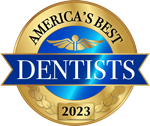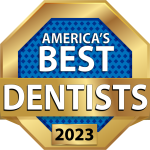Sleep apnea is a prevalent sleep disorder that often goes undiagnosed, but its impact on overall health, including oral health, cannot be ignored.
As dental professionals, we understand the importance of early detection and treatment. In this blog post, we aim to educate dental patients about the signs and symptoms of sleep apnea, enabling them to recognize potential red flags and seek appropriate medical attention promptly.
Understanding Sleep Apnea:
Sleep apnea is a disorder characterized by interrupted breathing during sleep. It occurs when the airway becomes partially or completely blocked, leading to pauses in breathing that can last from a few seconds to minutes. Dental patients should be aware of the signs associated with sleep apnea to ensure timely intervention.
Chronic Snoring:
Loud, chronic snoring is one of the most common signs of sleep apnea. If you or your sleep partner notice that your snoring is disruptive, irregular, and accompanied by gasping or choking sounds, it could be an indication of sleep apnea.
Excessive Daytime Sleepiness:
Experiencing excessive daytime sleepiness, regardless of getting an adequate amount of sleep at night, should raise concerns. If you find it challenging to stay awake and alert during the day, it may be a sign of sleep apnea disrupting your restful sleep patterns.
Fatigue and Lack of Energy:
Sleep apnea can leave you feeling tired and fatigued even after a full night’s sleep. If you wake up feeling exhausted, struggle to maintain energy levels throughout the day, or experience frequent bouts of tiredness, it could be a symptom of sleep apnea.
Morning Headaches:
Frequent morning headaches that dissipate as the day progresses may be a result of oxygen deprivation during sleep caused by sleep apnea. These headaches can be persistent, dull, and accompanied by feelings of heaviness or pressure.
Restless Sleep and Frequent Waking:
Sleep apnea often disrupts sleep, leading to restless nights and frequent awakenings. If you find yourself tossing and turning, waking up abruptly with a racing heart or gasping for air, it is advisable to explore the possibility of sleep apnea.
Mood Swings and Irritability:
Sleep apnea can impact your mood and emotional well-being. Patients with untreated sleep apnea may experience irritability, mood swings, difficulty concentrating, and even depression. If you notice unexplained changes in your mood or behavior, it is worth considering a potential link to sleep apnea.
Dry Mouth and Sore Throat:
Mouth breathing, a common symptom of sleep apnea, can cause dry mouth and a sore throat upon waking. If you frequently wake up with a parched mouth or a feeling of throat irritation, it could be a sign that your breathing is being compromised during sleep.
Dental Signs:
Dental professionals can also identify certain oral signs that may point towards sleep apnea. These can include teeth grinding (bruxism), worn-down tooth surfaces, and jaw pain. If your dentist notices these signs during a routine dental examination, they may recommend further evaluation for sleep apnea.
Seeking Diagnosis and Treatment:
If you recognize several of these signs in yourself or if your sleep partner has expressed concerns about your breathing patterns during sleep, it is crucial to seek a professional diagnosis. A sleep study, conducted at a sleep clinic or through home-based testing, can help determine whether you have sleep apnea.
Treatment options for sleep apnea may include Continuous Positive Airway Pressure (CPAP) therapy, custom-made oral appliances, lifestyle modifications, or a combination of these approaches. It is essential to work closely with healthcare professionals, including sleep specialists and dental professionals.



